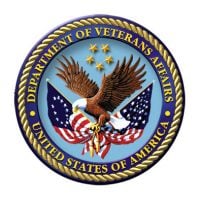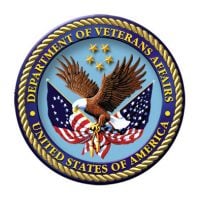Mental Health Counseling Center
Drug Rehab Center in Perryville, Missouri
- Mental Health
Mental Health Counseling Center in Perryville, Missouri, provides personalized evidence-based treatments for substance abuse and mental health issues, with a focus on creating a supportive atmosphere and using various therapy options including holistic treatments.
About Mental Health Counseling Center in Missouri
Mental Health Counseling Center in Perryville, Missouri, provides individualized, evidence-based treatments for those struggling with addiction and mental health issues. The center strives to provide top-notch treatment along with a supportive, accepting atmosphere to help those in need. The staff of therapists and counselors are dedicated to helping those with substance abuse issues, using a variety of evidence-based practices and a multidisciplinary approach.
Mental Health Counseling Center provides a range of services to help those with substance abuse issues, including individual counseling and group therapy. In addition, clients also have access to comprehensive assessment, comprehensive case management, psychiatric services, and co-occurring mental health treatment plans. The goal of the center is to develop custom treatment plans that are tailored to the individual needs of the client. Other services include family therapy and outpatient treatment.
Mental Health Counseling Center is accredited by the Joint Commission and is licensed by the Missouri Department of Mental Health. The center is dedicated to providing high-quality care and has received awards for excellence in clinical excellence and for offering compassionate, holistic care. In addition to their award-winning treatment, the center also offers holistic services, such as yoga, mindfulness, and art therapy to help clients on their journey to recovery.
Genders
Ages
Modality
Additional
Conditions and Issues Treated
Levels of Care Offered
This center offers a variety of custom treatment tailored to individual recovery. Currently available are Outpatient, with additional therapies available as listed below.
Alcohol or drug addiction, or co-occurring disorders, are treated in an outpatient program. The patient must attend therapy and other programs at the facility but can return home each night.
Outpatient treatment allows recovering addicts to live at home while receiving addiction treatment. Outpatients can attend group sessions for a few hours per week. Outpatients may also continue to work full time and study/attend school without interruption if they choose.
Therapies & Programs
Different people react differently to various treatment options. Some drug rehabilitation centers offer individualized treatment that caters to the specific needs of a drug addict. The best treatment option varies on an individual depending on the type of drug abused, life history, medical condition of the person, social circumstances, and the environment they live in now.
When a person enters drug rehab, they usually have anti-drug associations such as withdrawal symptoms, stress, cravings, etc. The first step of drug rehab is to detoxify the body from any residual substances in it. Drug rehabilitation centers usually employ trained medical professionals to help in this process. Usually, the initial detoxification lasts for five days, where the person is monitored under close supervision.
Couples therapy is a treatment method used to help couples in which at least one member of the couple has a drug addiction. The treatment is designed to help the couple strengthen their relationship to minimize the effects of drug addiction on their lives and promote healthy communication between them.
Couples therapy can be used whether the addicted partner is using drugs or in recovery. It helps the couple create healthy communication and coping skills to minimize the problem-solving abilities of one partner, which can then be directed at solving issues related to their addiction. It also helps couples address problems that may be related to drug addiction. Couples therapy can help couples feel like a team and not feel like their partner is the problem.
Couples therapy is very challenging for both the drug addict and their partner. It requires an intense commitment between the two individuals to participate in the sessions and the homework assigned between sessions.
An additional benefit of couples therapy is that it can help make other types of treatment, such as 12-step programs, more effective.
Family therapy sessions typically involve the addict and their family members. During these sessions, a therapist will work with everyone involved to help them understand addiction and find healthy ways of coping without substance abuse.
Some addicts might feel embarrassed about their substance abuse problems. By encouraging family members to attend these sessions, therapists can show addicts that they’re not alone in dealing with addiction. Therapists can also work with family members to help them understand addiction and learn how to offer support and encouragement to their loved one as they deal with substance abuse issues.
Attending group therapy at Mental Health Counseling Center in , is a useful way for those seeking sobriety to realize they aren’t the only one going through it.
This is when a group of people on different recovery phases get together and talk about what they’re going through, their triggers, successes, and failures. This can include alternative types of therapies too! Group therapy may occur on an outpatient or inpatient basis with groups that have no pre-existing relationships outside the session, unlike support groups where everyone already knows each other beforehand.
Trauma therapy is a form of therapy used to help people process and understand past traumas. This can help struggling addicts, as many people turn to drugs or alcohol to mask the pain of their past. Trauma therapy can be done in several ways, such as through visualization, discussion, and writing down thoughts and feelings. The goal is to help the individual understand why they are having problems coping with certain situations and changing how they think and react to things. This is often done in tandem with other therapies to treat the underlying issues associated with addiction.
The idea behind trauma therapy is that while some people can experience traumatic events and not have lasting psychiatric symptoms, many others will. In these cases, memories get hidden from consciousness but continue to influence how the person processes and copes with things in their life. They may avoid situations that resemble what happened or become suddenly angry or irritated to a situation that reminds them of a past event. With the help of a therapist, people can go back over memories and experiences. This helps them understand why they are having problems coping with certain situations and changing how they think and react to things.
This type of cognitive-behavioral therapy helps people understand how their thoughts, behaviors, and feelings are interconnected. It can help patients with borderline personality disorder gain control over their actions and stop self-harming thoughts and attempts.
Cognitive Behavioral Therapy is a type of psychotherapy that helps people address the thoughts and behaviors that may have led to their addiction. It also helps change negative thoughts into positive ones and promotes healthy communication between addicts and those around them. CBT is an efficient treatment for individuals suffering from all sorts of addictions.
Cognitive Behavioral Therapy (CBT) focuses on the underlying thoughts and behaviors that caused the problem of addiction in the first place and may cause a relapse. Negative feelings are common in drug abuse disorders, but they can lead to co-occurring disorders if not recognized. CBT involves strategies that help to change the behavior pattern by restructuring negative thoughts into positive ones. It helps to remove these feelings, and it provides long-term benefits. Also, CBT promotes self-awareness, self-control and can be administered as a mono-therapy or as part of combination therapy.
Payment Options Accepted
For specific insurance or payment methods please contact us.
Is your insurance accepted?
Ask an expert, call (888) 674-0062
Additional Details
Specifics, location, and helpful extra information.
Perryville, Missouri 63775 Phone Number(573) 547-3116 Meta DetailsUpdated November 25, 2023
Staff Verified
Mental Health Counseling Center Patient Reviews
There are no reviews yet. Be the first one to write one.
Perryville, Missouri Addiction Information
Opioid-related overdoses in Missouri have been increasing steadily for the past three decades. In 2018, more than 1,130 people in Missouri died from opioid abuse. Methamphetamines and marijuana abuse have surpassed opioid abuse in Missouri. Missouri is the number 1 methamphetamine manufacturer in the country with more than 27 meth labs per 100,000 people.
Perryville, Missouri's drug addiction problem is quite severe. There were 101 drug overdose deaths in 2016. This means that the city had a rate of 10.9 overdose deaths per 100,000 residents. In 2016, there were 5,877 admissions to treatment facilities for marijuana abuse and 2,973 admissions for heroin. There are many different addiction treatment facilities to choose from, and the community is very supportive of those seeking treatment.
Treatment in Nearby Cities
- Butler, MO (246.2 mi.)
- Sullivan, MO (78.0 mi.)
- Raymore, MO (259.9 mi.)
- Farmington, MO (30.7 mi.)
- Maryville, MO (324.1 mi.)
Centers near Mental Health Counseling Center




The facility name, logo and brand are the property and registered trademarks of Mental Health Counseling Center, and are being used for identification and informational purposes only. Use of these names, logos and brands shall not imply endorsement. RehabNow.org is not affiliated with or sponsored by Mental Health Counseling Center.
